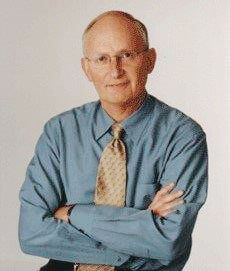The Exodus from Egypt, following centuries of slavery, is the most significant event in the formation of the Jewish nation.
One of the most widely celebrated and dramatic of all the Jewish festivals is Passover, known in rabbinic literature as the season of liberation. It is the national birthday of the Jewish people, and its many laws and regulations have been observed for centuries in many different ways all over the world.
The holiday of liberation is also the holiday of spring. The Jewish calendar is set, so that Passover will occur during springtime.
Following the darkness of the shorter days in the winter when many plants lie dormant, spring marks the rebirth of the Earth with the bursting forth of budding trees. Similarly, the Israelite people, oppressed as slaves, burst forth out of Egypt into a new life’s journey with many challenges but the gift of freedom.
The English name “Passover” is a literal translation of one of the two biblical names for the festival of Pesach. The Hebrew term pesach, which means to “pass over,” is a reminder of the divine protection that the Israelites enjoyed in Egypt during the 10th plague, when the angel of God passed over their homes while slaying every firstborn Egyptian.
The other biblical name for the holiday, Hag HaMatzot (Festival of Unleavened Bread), serves as a reminder of the unleavened bread that the Israelites hastily made when they hurriedly left Egypt and had no time to let their dough rise.
The special home ceremony on the first two nights of Passover, called the Seder (meaning “order”), is based on the biblical injunction to parents to inform their children of the miracle of the deliverance from Egypt: “And you shall tell your son on that day, saying: It is because that which God did for me when I came out of Egypt.” (Exodus 13:8)
By the beginning of the second century, we begin to find rabbinic references to various phases of the seder as we know it today.
This year, Beth Judah will celebrate a lay-led Freedom Seder April 8. The seder will be led by congregants.
We continue to face new pharaohs in every generation. The Freedom seder is intended to help clarify the spiritual roots of the struggle for justice, peace, and freedom, using the format of the seder as a catalyst for conversation.
The seder will take place in the Beth Judah social hall, and there is already much excitement of being together back in the building after a few months’ hiatus.
Passover has meant many things to the Jewish people throughout the ages. From their very beginning, they saw God’s outstretched arm in history and owed their very existence as a people to their faith in divine intervention.
The home observance of the seder meal has strengthened family ties. As the springtide of nature fills each creature with joy and hope, so Israel’s feast of redemption promises the great day of liberty to those who still chafe under the yoke of oppression.
ED. NOTE: The author is rabbi at Beth Judah Temple in Wildwood. He invites questions emailed to his website, www.rabbiron.com.







